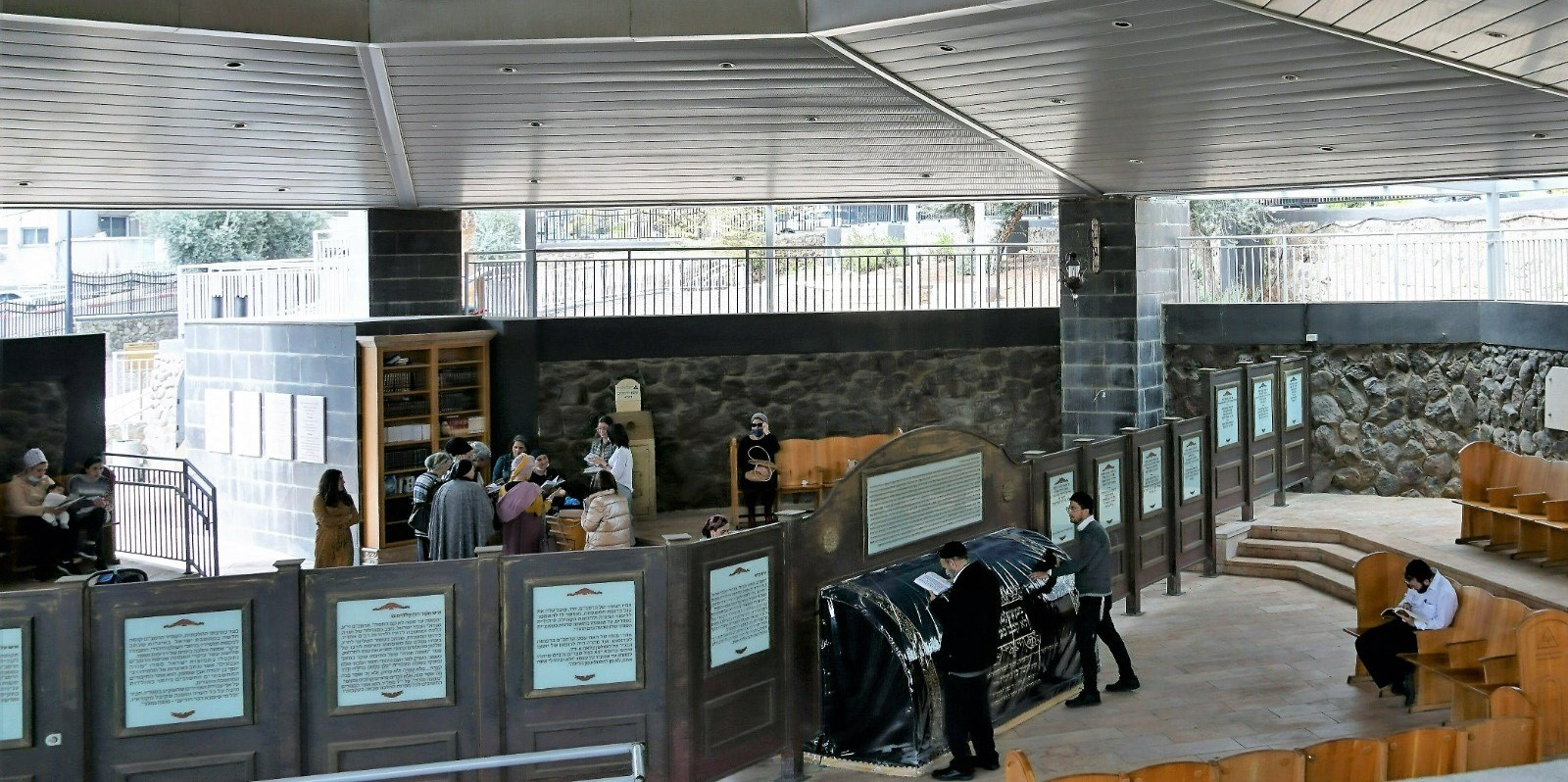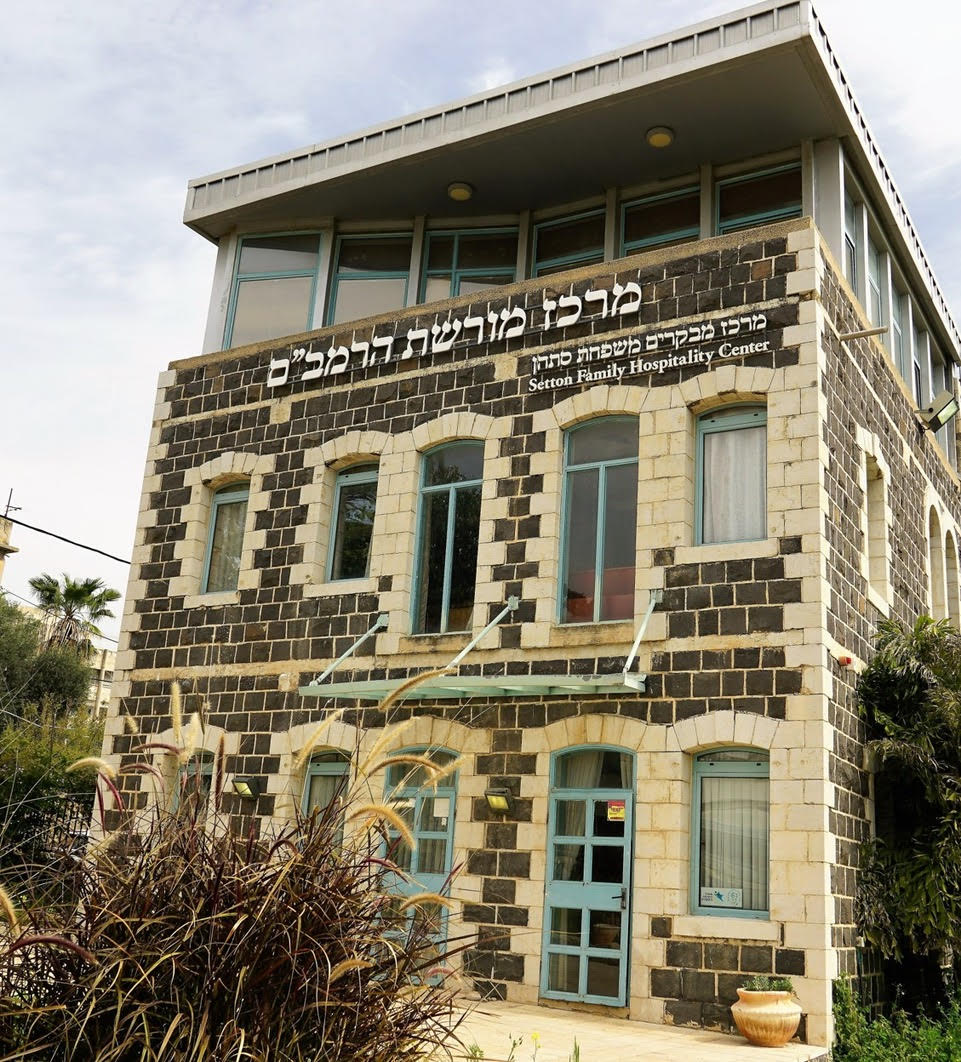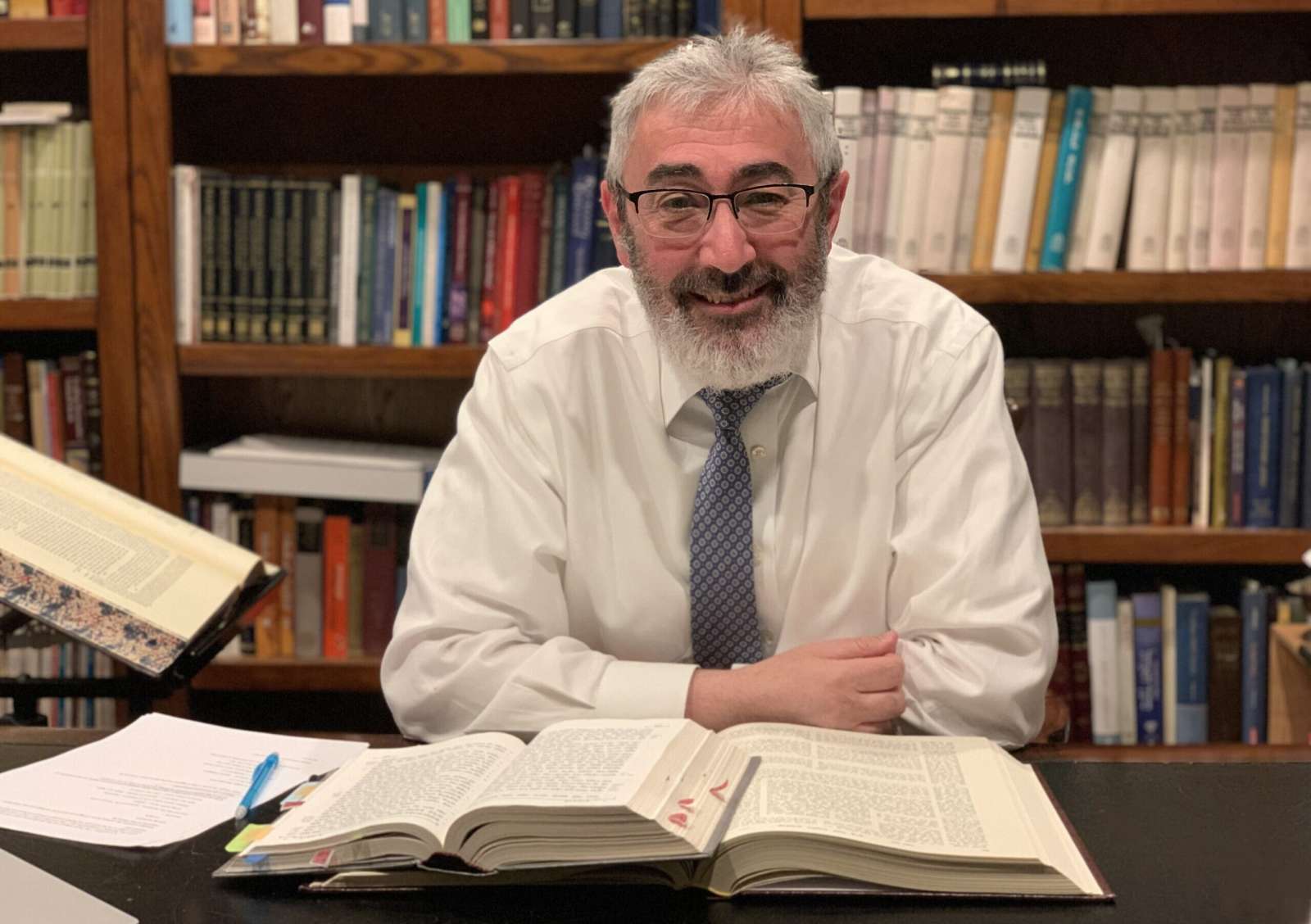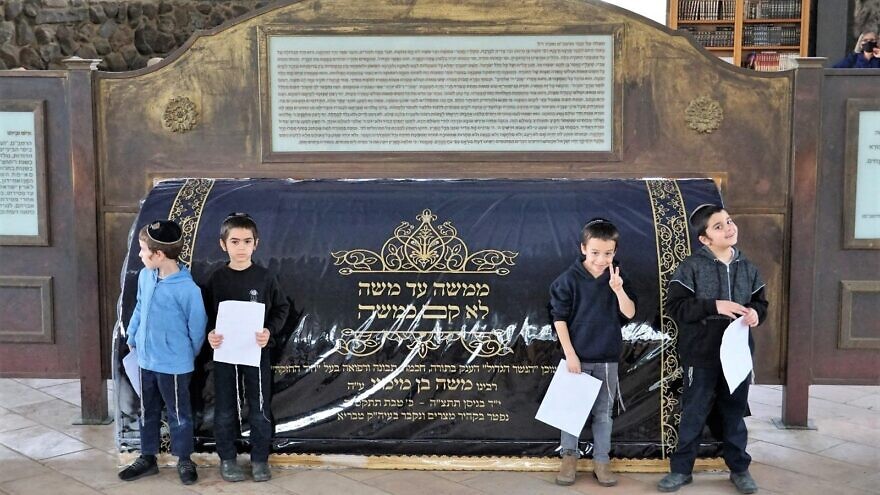Rehabilitating a crack house in Tiberias was not exactly in the job description of Yamin Levy, rabbi of an orthodox synagogue in Great Neck, N.Y. But that house happened to be located right next to the dilapidated tomb of Rabbi Moses ben Maimon, the great medieval philosopher and halachic authority known as the Rambam, or Maimonides. And so, Levy could not sit idly by.
That was back in 2004, during the closing days of the Second Intifada, when Levy led a solidarity tour to Israel that included several congregants of his Iranian Jewish Center congregation as well as the then-mayor of Great Neck.
Back in New York, the rabbi set about finding out who owned the house and raised the funds from among his congregants to buy the property. “That’s how our organization started,” he explains. Among the initial donors were Joshua Setton, CEO of Setton International Foods; and the late Stanley O. Silverstein, founder of Nina Footwear.
Visitors to the Tiberias site today see an entirely different reality. The tomb of Maimonides that the 2004 New York delegation found neglected, dark and dirty is now well-lit, surrounded by well-maintained shrubbery, filled with new prayer books, and furnished with comfortable and attractive seating. Plaques in English and Hebrew explaining important facts about the revered sage line the approach to the site.

The former crack house next door is now a restored three-story building that houses the Maimonides Heritage Center, an active educational and community facility used as a place to carry out the Rambam’s principles of education and acts of lovingkindness.
But in the early days, opposition came fast and furious from an unexpected quarter: Israel’s haredi political leaders who oversaw the National Center for the Development of Holy Sites that operates under the aegis of the Ministry of Religious Services. They did not want to relinquish control of the site.
“We had to go to war with them,” recalls Levy. “They asked: ’Who is this American rabbi who came out of nowhere to take charge here?’ ”
With the help of people like Likud Knesset member Limor Livnat, who served as Minister of Education (2006-2008) and Minister of Culture and Sport (2009-2015), things began to move. Livnat, who has a home in northern Israel, shared the vision of bringing 1 million people a year to an educational center in Tiberias based on Maimonides principles.
According to Levy, it was Livnat who used her influence to fight the opposition and push through the bureaucracy that allowed the Americans to proceed with the renovations at the tomb, as well as the purchase of the property that became the Educational Center.
Acting Mayor of Tiberias Boaz Yosef told JNS that he is not bothered by the fact that almost all the funding for the revitalization of the Maimonides tomb and center comes from abroad. “Unfortunately, the government doesn’t approve, and there’s almost no government funding coming our way,” he laments. “Such a site is of importance to all the Jewish people, and we welcome anyone who wants to participate.”
Today, the center enjoys the support of the Ministries of Education and Tourism as well as the President’s Office.

‘You’ll find your link to Judaism here’
In recent decades, Tiberias—a city of 55,000 on the western shore of the Kinneret—has suffered from tension between the secular and ultra-Orthodox populations, coupled with a succession of mayors who have failed to capitalize on the remarkable physical and historical assets of the city to change its image.
The coronavirus pandemic caused even more deterioration to a city whose economy relies heavily on tourism, so Yosef sees the Maimonides Center as an important draw. “Jews from all over the world honor the Rambam; we want to build a place where they can all come to honor this great heritage,” he says.
Now, the goal is to expand the existing renovated center into a $20 million state-of-the-art Rambam Quarter in the heart of Tiberias. “The vision is that you’ll find your link to Judaism here, no matter who you are—religious, not religious, male or female, Sephardic or Ashkenaz. This is our link,” Levy states enthusiastically.
The rabbi’s group has hired the Diskin Multidisciplinary Design firm, whose Israeli projects include the Peres Peace Library in Tel Aviv and the Friends of Zion Museum in Jerusalem. The Diskin motto—“Achieving immersive emotional and physical experiences that convey your message”—is exactly what both Yosef and Levy hope to create in the area surrounding the tomb of the Rambam.
Despite growing up in an observant home in Montreal and having a Jewish day-school education, Levy recounts that he never encountered the teachings of the Rambam until the early days of his yeshivah studies in Israel. It was his teacher, Rabbi Haim Fogel, who opened the door to Maimonides for the young Yamin Levy.
The discovery of a figure who combined philosophy, Talmudic wisdom, medical knowledge and intellectual rigor was intriguing and became the focal point of Levy’s Judaism. “Rambam was a codifier of the Talmudic tradition and a staple of Jewish law. You can’t learn Jewish law without the Rambam,” he states.
“I firmly believe the Rambam is the voice for the 21st-century serious Jew. It’s the voice of reason, profound spirituality, the voice of science and philosophy, and halachah at the highest level and the voice that links our Talmudic authorities to Jewish law until today,” he explains.
“The Rambam is the voice of reason when it comes to Jewish law. The beauty of the Rambam is that women can lead the Purim Megillah reading because of the Rambam and the haredi world does things their way because of the Rambam.”
Levy told JNS that back in 2004, he focused on an idea from the Rambam that suggests that the Messiah will come from Tiberias. Tiberias was the last place where the Sanhedrin was exiled, and so before returning to Jerusalem, it must reconvene where it last met. “I came back to the U.S. and said, ‘We’re going to bring Moshiach from Tiberias!’ It was a naive young vision, but that’s what got people excited,” he recounts.
He adds that “along with the development of the educational center, that vision developed into the goal of helping achieve economic stability for the city of Tiberias.”

‘He’s a mover and shaker’
Members of the Iranian American Jewish Federation of New York, as well as members of Levy’s congregation, joined together to adopt Tiberias as a place for investment as well as charity. Eight years ago, they invested in several projects in the city, including a new mall and renovation of the promenade along the Kinneret.
In Israel, the day-to-day work of the center is overseen by Fogel, the former yeshivah teacher who, like Levy, wears many hats. In addition to his role as chairman of the Maimonides Heritage Center, Fogel is the chairman of the Rav Kook House in Jerusalem and heads up the board of trustees of Orot Israel College, a teacher training college in Elkana; and Ort’s Rehovot campus, formerly the Moreshet Yaakov College. “He’s a mover and shaker,” relates Levy.
Dozens of volunteers and a smattering of employees carry out the work of the center. There’s a waiting list to be accepted as one of the 40 Sherut Leumi (female National Service) volunteers who get professional development and shared housing in exchange for working with local youth and the elderly, in addition to running after-school activities.
On the educational front, the center maintains close contact with school principals and provides weekly printed and online content for students of all ages. More than 10,000 school-age kids visit the center every year, in addition to Birthright tours and groups from the Israel Defense Forces. For adults, the center runs an Annual Rambam Conference that attracted more than 1,000 people last year to a Tiberias hotel.
Levy is optimistic that these activities and financial investments will help restore one of Israel’s four holy cities to its rightful place as a sought-after education and tourist attraction. “Tiberias is the most beautiful city in Israel,” he insists. “I have a small apartment there, and it’s where I plan to retire.”
“One million visitors travel to Cordoba in Spain to look at a statue of the Rambam,” says the rabbi. “We want to bring 1 million visitors every year to a beautiful place to learn and connect with the Rambam.”


























